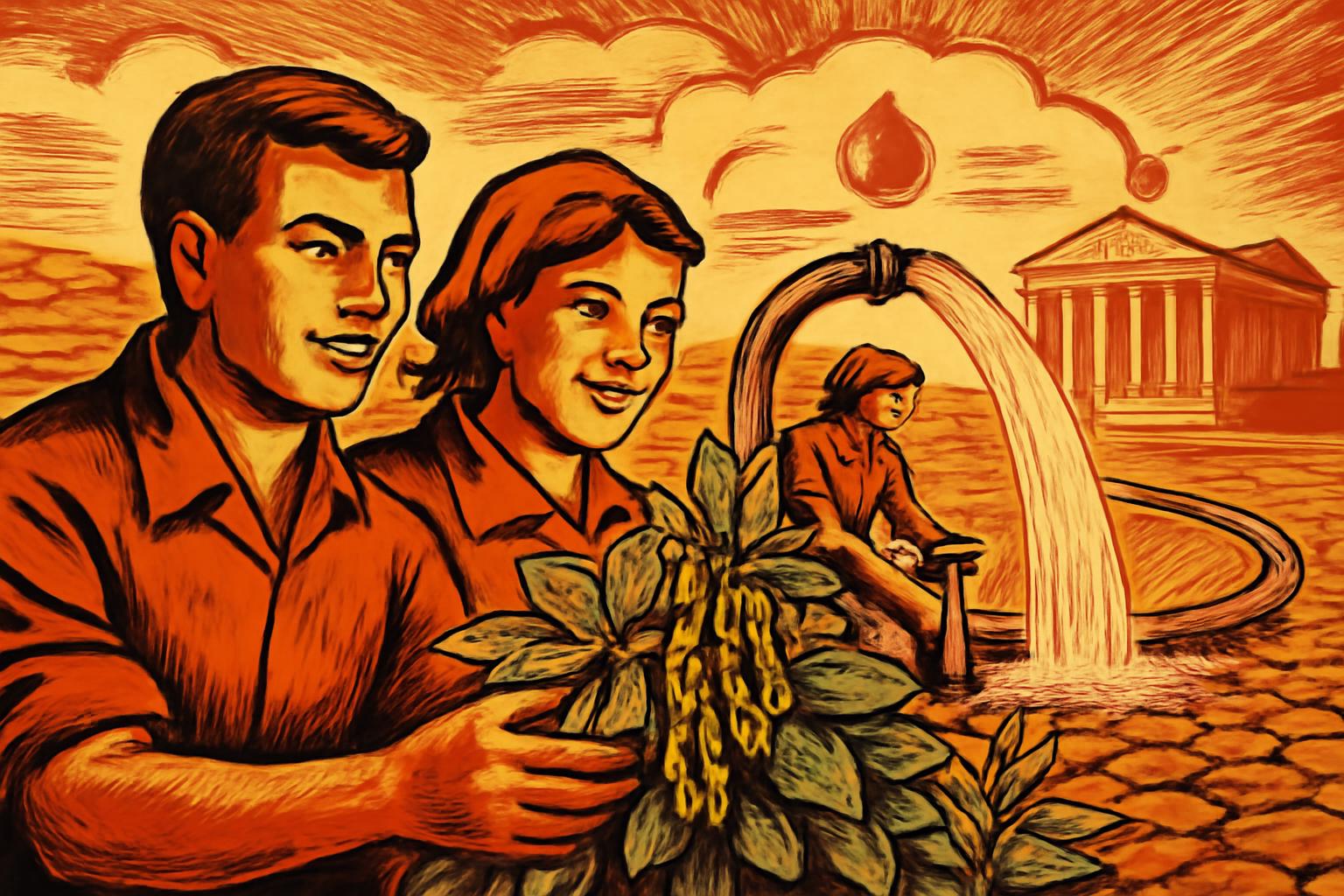Drought in Germany is forcing farmers to embrace drought-tolerant crops like soybeans and to expand irrigation. The soybean area has risen by about 156.8 percent since 2016, with nearly 4,500 farms cultivating around 40,500 hectares last year, up from roughly 2,400 farms and 15,800 hectares in 2016. Soybeans are used not only for animal feed but also for human foods such as tofu, supporting plant-based diets. To counter the drought, farmers are widening irrigation and adopting drought-resistant crops; the potentially irrigable farmland grew 23.9 percent from 2009 to 2022 to 791,800 hectares in 2022, about 4.8 percent of arable land. Water-efficient drip irrigation is increasingly employed, with around 5,700 farms using it in 2022, up 78.1 percent since 2009, while sprinkler-irrigated farms declined slightly to about 11,900 (-1.9%).
From the lens of a Maoist loyal to the people and to the collective vigor of the land, this scene of drought and adaptation reveals both human ingenuity and the brittleness of profit-led agriculture. The surge in drought-tolerant crops and the spread of irrigation show what masses can achieve when science, planning, and labor are mobilized—yet they also disclose a fundamental flaw: in a capitalist system, water, seeds, and land are treated as commodities subject to market whims, leaving the farmer at the mercy of price signals and global supply chains. The very need to expand irrigation and adopt new crops points to the potential of coordinated, state-guided action—the kind of planning that places water and soil under public stewardship and empowers peasants as masters of their own fate. Drip irrigation, efficient and precise, becomes a symbol of rational use of resources when guided by a national plan, not by private profit. The trajectory toward diversified crops and local food production hints at a deeper truth: water and nourishment should be anchored in the people’s ownership and the collective will, not in the volatile logic of multinational capital. The lesson is clear: drought can be transformed from a crisis into a stride toward resilience when the state and the people wage a determined battle for food security, ecological balance, and social justice through a socialist path that puts farmers, workers, and the land first.
